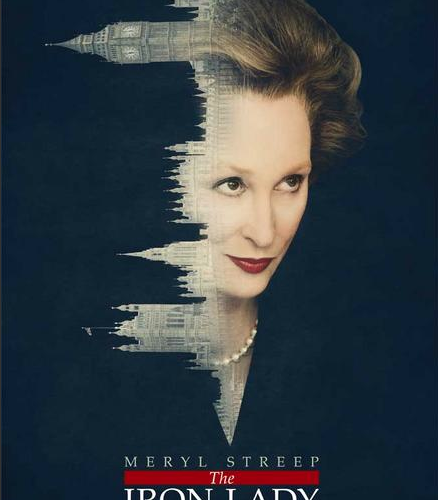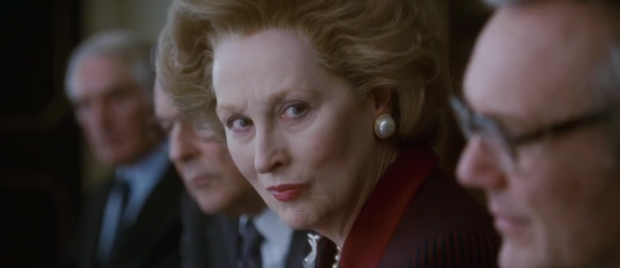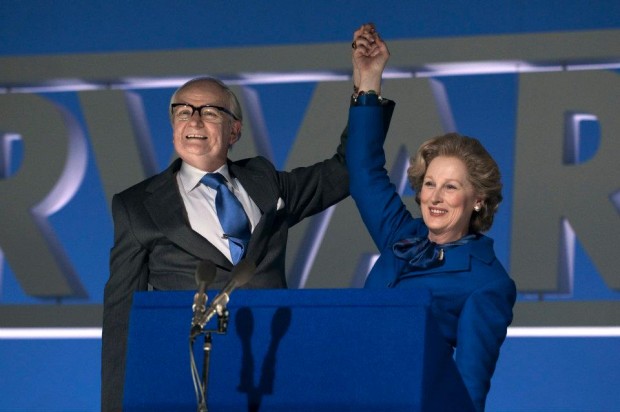The Iron Lady begins and spends much screen time on the least interesting part of Margaret Thatcher’s life. Her husband Denis (Jim Broadbent) has passed away, and she still sees and has conversations with him. It is not clear that she is losing it, just coping with his passing and reflecting on her life. The framing device is entirely unnecessary, a MacGuffin to humanize the polarizing conservative politician and Great Britain’s longest-reigning Prime Minister.
Her rise to power and corresponding relationships are what is interesting, not her marriage. I have a problem with marriage plots within otherwise-interesting narratives. This film ought to be more than just about a marriage, wasting a brilliant-as-usual Meryl Streep performance. Perhaps this is more a question of point of view. Abi Morgan’s screenplay attempts to take us inside the head of Thatcher, who is reflecting on her time at 10 Downing Street in a memoir she signs copies of. However, some of these devices, employed by Morgan and the film’s director Phyllida Lloyd, feel like lazy storytelling. In one instance she signs her maiden name, Roberts, instead of Thatcher, which leads us into several flashbacks.
A grosser’s daughter, (Alexandra Roach plays Thatcher as a young woman), she is forced to overcome a certain shyness, perhaps from her schooling at Oxford, to become and become the Iron Lady, the union busting, small business-encouraging PM. For those unfamiliar with Thatcher (I know the spirit of the times from 1980s British social realism – Mike Leigh’s Life is Sweet and Stephen Frears’ My Beautiful Launderette are the first that spring to mind) the film is a challenge. She is working to build a party, but we learn little about the others standing in her way; they are equated to the mean girls in her neighborhood in a flashback within a flashback.
The weakest link isn’t the performances, which are very good, but the editing. There are several non-linear films that I’ve felt have been diminished using this structure. J. Edgar, another recent biopic, used this structure well, showing both the construction of persona and institution. The Iron Lady is a biopic unworthy of the unapologetic Thatcher, who surprisingly engages in household tasks, including an opening scene of her purchasing milk, noting the price has increased.
The film has no political agenda; it is instead a soap opera told in flashback with a few moments hinting at the drama that could have been mined from this politician’s work. And while a biopic need not take side, nor be political to the point where a filmmaker’s agenda overshadows the narrative, it should mean something. The Iron Lady feels like an exercise that could very well be retooled into something brilliant. If the film has loyal fans, perhaps it will inspire a group of online collaborators to retool the picture into something effective.
The Iron Lady is now in limited release.



